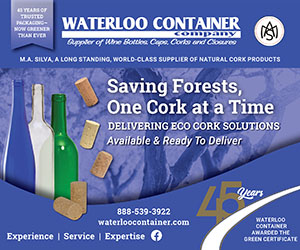Use Of Bleach In A Winery
Q: I was hoping you could help us out with a “cleaning” question. We have a home winemaker’s center, and we use potassium metabisulfite to clean all of our equipment, etc. However, we have some deep discussions on what is acceptable to use to clean our floors. We currently use bleach but we want to make sure this is OK, and does not have any adverse effects we are not thinking of. We of course wash the floors so that there is no residual bleach, but I want to make absolutely sure.
— Gianni FabrizI • Hicksville, New York
A: My rule is no chlorine bleach in my wineries, never, nohow. Anything containing chlorine might contribute to the dreaded “corked wine aroma,” 2-4-6 trichloroanisole (TCA), in your finished wines. It can be a convoluted pathway, but certain indigenous molds in your cellar or in wine corks can metabolize free chlorine molecules into this stinky, swampy aroma that some say can affect up to one in twenty (though in my experience it’s a lot fewer) bottles of wine in supermarket shelves these days. This is also, incidentally, why we should all filter the water we use in winemaking so it’s chlorine-free, if at all possible or practical. So I would like to see you take chlorine bleach and bleached products out of your cellar cleaning and sanitizing regimen. Go with something like PBW (powdered brewery wash — available from many hobby winemaking suppliers).
By the way, potassium metabisulfite can be a great sanitizing agent, but please don’t forget it is technically that — a microbe-reducer and not a cleaning chemical per se. Cleaning agents get rid of scale, dirt and grime whereas sanitizers need to be applied to an already-clean surface for maximum effectiveness. Just make sure that your cleaning and sanitizing compounds don’t contain any chlorine.

